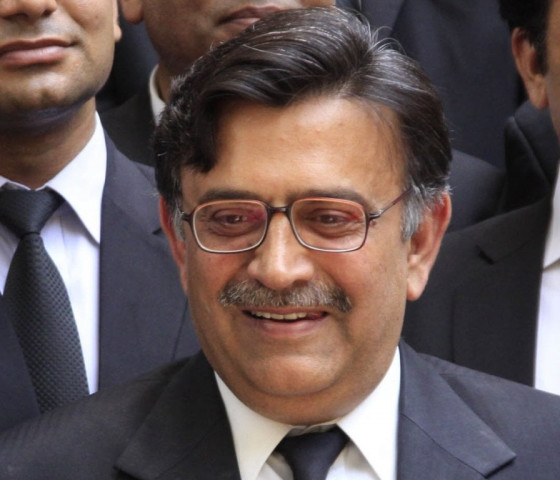National security: Courts do not interfere in policy matters, says CJ
The petitioner had sought a stay on a surgical operation against the TTP.

Chief Justice of the Lahore High Court Umar Ata Bandial. PHOTO: ZAHOORUL HAQ
Lahore High Court Chief Justice Umar Ata Bandial on Friday refused to accept a plea to stop the government from launching an operation against the Taliban.
The chief justice said the courts could not interfere in policy matters. The issue was raised during the hearing of a petition seeking directions to the federal government to hold talks with the Taliban and allow them to open an office in the country.
As the hearing commenced on Friday, the petitioner said anti-peace forces were trying to sabotage peace talks between government and the Taliban. He said the government had decided to abandon talks and has launched a surgical operation in northern areas. This would not only prove fatal to peace in the country but would bring about even more destruction, he said.
The petitioner requested the court to issue a stay order against the operation and direct the government to resume negotiations with the Taliban.
The court dismissed his plea and said it was the government’s prerogative to devise a war policy. Justice Bandial said the court could not interfere in policy matters.
The chief justice asked the petitioner, Advocate Kashif Solomany, to come up with arguments on the maintainability of his petition at the next hearing on March 28.
Solomany said, “If it is the state’s policy to allow other countries to target its citizens with drones, it violates the citizens’ fundamental rights...which it is the court’s duty to protect.”
The petitioner said surgical strikes against the Taliban without first holding a dialogue would greatly damage peace. He said Pakistan had lost 49,000 of its citizens in the war against terror.
“The armed forces have lost 15,681 men in Tribal Areas since 2008. Around 5,152 civilians have been killed and 5,678 injured in bomb blasts and suicide attacks since 2008,” the petitioner said.
Solomony’s petition states that Pakistan had lost almost $100 billion since it allied itself with the US-led war in Afghanistan. Economic growth had been slow as a result as well as demand for imports. Inflow of foreign investment had been adversely affected accentuated by travel bans issued to foreign entrepreneurs.
He said Pakistan continued to pay a heavy price. A large portion of its resources, human and material, had been consumed in the war for several years.
Solomani said talks with the Taliban were an “efficacious, adequate and alternative remedy” to fighting, but the option had been ignored. Military action had borne no fruit so it was time to try dialogue. He said the Tehreek-i-Taliban Pakistan had denied involvement in three of the recent bomb attacks in Khyber Pakhtunkhwa, which raised the question of who was behind the attacks.
The petitioner said having a Taliban office in the country would facilitate the dialogue. “The national leadership should give dialogue a chance in the interest of peace.” He said according to the Charter of United Nations Organisation, no sanctions could be imposed on Pakistan for holding a dialogue with the Taliban.
Published in The Express Tribune, March 1st, 2014.



















COMMENTS
Comments are moderated and generally will be posted if they are on-topic and not abusive.
For more information, please see our Comments FAQ